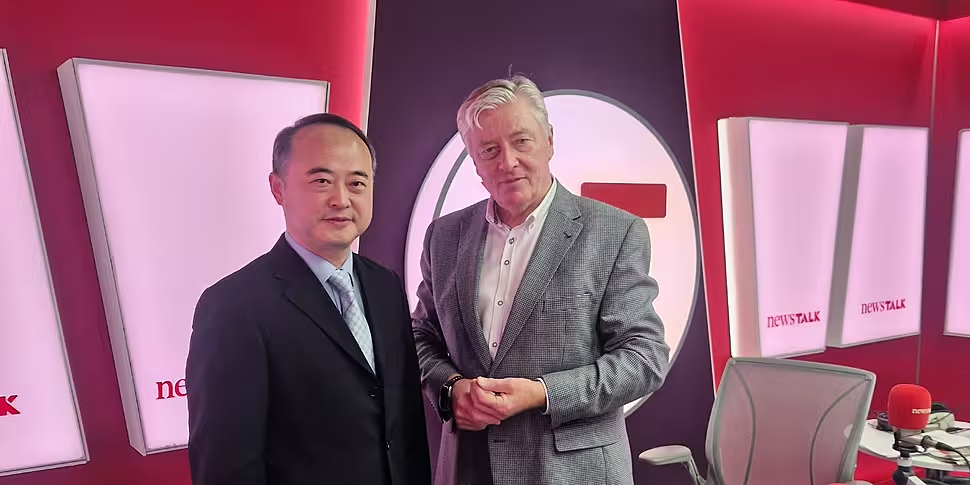China’s Ambassador in Dublin has promised to help boost Irish exports into his country in the wake of US tariffs.
Washington has placed tariffs of up to 145% on Chinese imports into the United States, while Beijing has responded by charging a 125% tariff on US imports.
The Chinese Government is now looking to reduce its reliance on the US market and Ambassador Zhao Xiyuan said he expected Irish businesses would benefit.
“You have a very good infant milk formula [industry] selling to China,” he told The Pat Kenny Show.
“I think it’s over 70 or 80% of [Ireland’s milk formula] exports go to China.
“That’s very good for the Chinese people.
“Also, we can expand the market for the dairy products for adults - not only for the infants.
“It’s a very big market; we have 1.4 billion and we also have 400 million middle class consumers.”
He added that the trade relationship between Ireland and China is mutually beneficial.
“In the past 16 consecutive years, we have had a very good relationship in terms of trade,” he said.
“Last year’s statistics show that we have over a trade volume of over €20 billion.”
Trade and human rights
In recent years, concerns have been raised about Beijing’s economic policies and last year the European Union voted to impose tariffs of between 17% and 35.3% on the import of Chinese EVs, arguing China unfairly subsidised its car companies.
There have also been allegations of serious human rights violations; in 2022, the United Nations High Commissioner of Human Rights Michelle Bachelet published a report that said, “Allegations of patterns of torture, or ill-treatment, including forced medical treatment and adverse conditions of detention, are credible - as are allegations of individual incidents of sexual and gender-based violence” against China’s Uyghur minority in Xinjiang.
🔴UPDATE@UN human rights experts have raised serious concerns about the alleged detention & forced labour of Muslim #Uyghurs in #China, calling for access to conduct fact-finding missions & urging corporations to scrutinize their supply chains.
— UN Human Rights Council (@UN_HRC) March 29, 2021
The Chinese Government has denied the claims, insisting that “lawful rights and interests of workers of all ethnic groups in Xinjiang are protected and there is no such thing as ‘forced labour’”.
Despite this, earlier this week, the British Government announced it would ban its new State-owned energy company, GB Energy, from buying Chinese solar panels due to "credible evidence of modern slavery" in Xinjiang.
Main image: Ambassador Zhao Xiyuan. Picture by: Newstalk.









